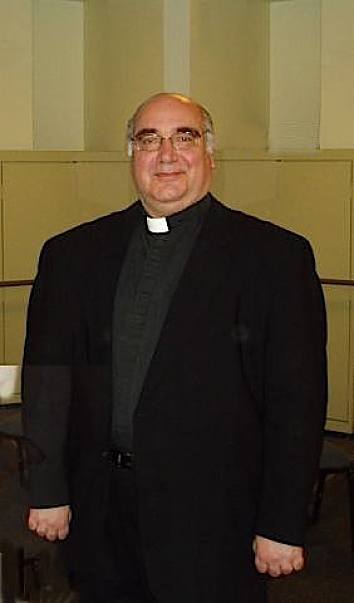August 25, 2014
 Father Ron Franco, CSP
Father Ron Franco, CSPThe Evangelist Matthew tells us that when Jesus came home to Nazareth, the hometown crowd dismissed him as “the carpenter’s son” (Matthew 13:55). The context suggests it was familiarity more than Jesus’ being a worker that most upset the people, but his workman status certainly didn’t help his cause with them. In thus dismissing “the carpenter’s son,” however, the Nazarenes missed out on the opportunity of a lifetime.
When I was a graduate student, we dreaded Labor Day because the university library would close for three days for its annual sprucing-up before the start of school. In those days when so few places were air-conditioned, that meant not only no place to read, study and socialize, but also no place to keep cool and to breathe pollen-free air. Labor Day, a federal holiday since 1894, sadly long ago joined most of our other national holidays in losing much of its original civic significance to become just a “holiday weekend”––an opportunity for shopping and other diversions. Even when I was a child and the American labor movement was still strong and the traditional Labor Day Parade still defined New York’s Union Square, Labor Day was already becoming more about the end of summer vacation, the last day for women to wear their white shoes and men their straw hats, and the return to school and normal activities and less of a serious civic celebration of American workers (and the affluence their astounding productivity had helped to produce).
Lacking any contrary experience, young people trying to enter the labor force today may automatically assume their opportunities will be fewer and their standard of living less than those of their parents, but it was not always so. That great post-World War II quarter-century or so of unprecedented, nationwide, across-the-board prosperity proves that the present era of increasing economic inequality and the progressive deterioration of American middle class life is neither how it used to be nor how it had to be. There are, of course, many contributing factors to today’s sad state of affairs, and reasonable people may make differing judgments about both its causes and possible remedies. But certainly a situation in which, as the U.S Conference of Catholic Bishops 2012 Labor Day Statement notes, “Millions of Americans suffer from unemployment, underemployment or are living in poverty as their basic needs too often go unmet … represents a serious economic and moral failure for our nation.” And certainly one dimension of this failure is a diminished appreciation of the centrality of productive work for a fulfilling human life and a flourishing economy. “Work is more than a paycheck,” the Bishops’ Statement reminds us; “it helps raise our families, develop our potential, share in God’s creation, and contribute to the common good.”
Solving our society’s economic problems has been made even more problematic by the globalization of economic activity, which has rendered obsolete so much that used to be taken for granted. That challenge, however, only makes it that much more urgent to recover an authentic understanding of human nature and human solidarity––and of fulfilling human labor as an essential component of a productive economy and a good society.
Father Ron Franco, CSP, is pastor of Immaculate Conception Church in Knoxville, Tenn.
